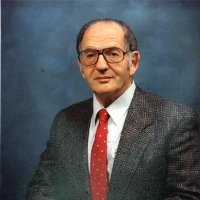Six Myths of Tinnitus
 |
Murray Grossan, MD. About the author: Dr. Grossan is an otolaryngologist and head and neck surgeon with the Tower Ear, Nose and Throat Clinic at Cedars-Sinai Medical Center in Los Angeles and the founder of the Web based Grossan Sinus & Health Institute (https://www.grossaninstitute.com). He is author of Free Yourself from Sinus and Allergy Problems Permanently. |
Today we demand scientific data, objective evidence, and mathematical analysis of experimental findings. But when you have a condition called Tinnitus where there is little objective evidence, we end up with non-objective concepts – myths.
Myth one: Stress causes tinnitus.
Stress does not cause tinnitus
Certainly stress can aggravate and make any condition worse, including tinnitus, but it is not a cause or originator of tinnitus. A stress reaction to tinnitus is common because we are born with a fight/flight reaction when we hear danger sounds. Until we identify that tinnitus is not a threatening tiger, the stress center continues to produce fight/flight response.
Why is this important? Among the ten million persons who have symptomatic tinnitus, the myth that it is caused by stress prevents patients from seeking diagnosis and therapy.
Often the onset is dismissed as a symptom of job or financial stress and therapy is therefore delayed. Or, the patient feels that she bears a personal responsibility for causing her tinnitus.
Myth Two: There is not treatment for Tinnitus
Another myth about tinnitus is that there is no treatment for it. The American Academy of Otolaryngology has published Clinical Practice Guideline:Tinnituts www.entnet.org with specific therapies that includes
Sleep Improvement
Stress Reduction
Masking/Distraction
Cognitive therapy
See: https://oto.sagepub.com/content/151/2_suppl/S1.full.pdf+html
Any single one of the therapies discussed by the guidelines can be of benefit to the tinnitus patient. There are many clinics and clinicians that administer therapies of value such as Tinnitus Retraining and Neuronomics.
What is the origin of this “just learn to live with it“ myth? Part of it originates in the days when various therapies were being promoted for tinnitus cure. The doctor seeing their patients spend money on these “cures “ and getting little or no benefit, decided it was best to save the patient’s money and discourage spending it on unproven cures. Medications recommended to increase circulation to the inner ear were of little benefit, since tinnitus is not due to poor circulation to the inner ear.
Another origin of the no treatment is available for tinnitus myth is the placebo effect. Unless special care is taken, and the tinnitus is measured, placebo errors can allow for enthusiastic cures to be announced, followed by disappointments.
Doctors are well aware of the placebo effect. When I did a study of EMG for biofeedback therapy for tinnitus, my office was directed to play a role of avoiding niceties or pleasantries. No test patient was greeted with beaming smile, or “so nice to see you today Mrs. Sloan,” and I avoided personal contact too. Patients were escorted to the treatment room, given instructions to lower the EMG dial reading, and afterward quietly rescheduled. Small wonder a patient commented on how cold my office personnel were! However, I was confident on reporting benefit in lowering stress factors involved in tinnitus and was able to show changes in volume and symptoms.
Myth 3: Tinnitus can’t be measured.
There are several measurements of tinnitus that are suitable for research and therapy.
Tinnitus can be matched as to sound and volume. This is usually performed by an audiologist using the audiometer sounds.
Further measurements are Tinnitus Inhibition. If a masking sound is introduced, and the patient’s tinnitus is no longer heard, we measure how long that inhibition lasts after the masking sound is stopped.
Various patient questionnaires are standard, used in tinnitus clinics, and are valuable for measuring tinnitus effects. These are no fewer objectives than other standard commonly used psychology tests and each of these have significant journal publications and studies that verify their value. The standard measurements include:
Tinnitus Severity Index
Tinnitus Reaction Questionnaire
Tinnitus Handicap Inventory
Times Functional Index
Each of these has been used for years, have had multiple journal publications to verify their use and are accepted for literature and research.
When the audiologist matches the exact sound that patient is hearing, it is valuable to then provide matching sounds for masking, inhibition or accommodation.
Various web sites offer tinnitus sounds for downloading. See www.drgrossantinnitus.com
Myth 4: Tinnitus is best treated by a Neurologist
Tinnitus due to Meniere’s disease, cochlear hydrops, impacted cerumen, migraine/migraine equivalent; Schwannoma, etc are best investigated and treated by otolaryngologists.
Myth 5: Best treatment for Tinnitus is Xanax or other benzodiazepam
It is true: Xanax and similar benzodiazepams do reduce symptoms. They also reduce symptoms of a painful tooth or a fractured tibia, but is that the best therapy? The dentist repairs the tooth; the orthopedist repairs the fracture; the otolaryngologist should follow the Academy protocol.
Myth 6: Every patient with tinnitus should first get an MRI.
The yield for MRI where there isn’t an obvious indication is minimal. Certainly, in a unilateral tinnitus with hearing loss, MRI is indicated. But MRI for tinnitus in a machinist with symmetric hearing loss is not.
The majority of tinnitus is from noise trauma and MRI here rarely gives a useful yield.
Conclusion:
Joseph Campbell has explained many of the ancient and current myths and how they reflect our emotional needs. But the myths surrounding Tinnitus are causing harm because doctors are not offering patients therapy that is available and patients are not seeking these therapies.
The guidelines of the Academy are clear, and patients who suffer from tinnitus are benefitted when doctors are familiar with them and use them to treat their patients. Best, therapy is when the patient is treated as a whole person that includes the factors known to be of benefit.
Otherwise we will see more cases like the tragic 44-year-old woman in the Netherlands, who chose to be euthanized because of her tinnitus.
For more information, visit:
www.grossaninstitute.com
www.ent-consult.com
(9470)